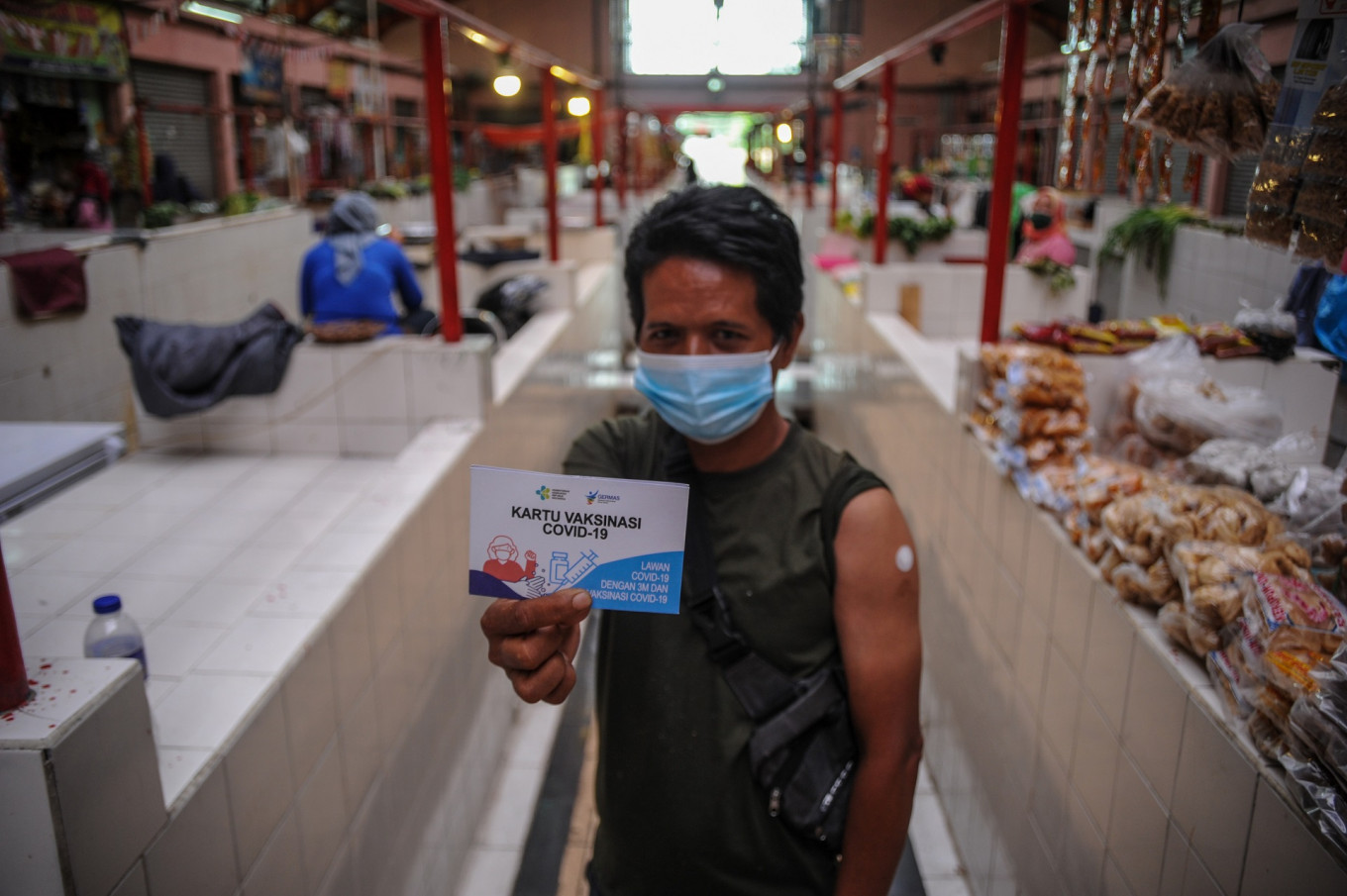Popular Reads
Top Results
Can't find what you're looking for?
View all search resultsPopular Reads
Top Results
Can't find what you're looking for?
View all search resultsPrivate vaccination scheme begins at Jababeka
Indonesia kicked off its private COVID-19 vaccination program on Tuesday at the Jababeka industrial estate in Bekasi, West Java, where a number of labor-intensive companies have signed employees up for the jab.
Change text size
Gift Premium Articles
to Anyone
C
OVID-19 vaccinations under Indonesia’s much-anticipated private scheme began on Tuesday at the Jababeka industrial estate in Bekasi, West Java.
Bambang Heriyanto, corporate secretary at state-owned pharmaceutical company Bio Farma, which has been involved in both the state and private sector inoculation drives, confirmed the rollout in a statement.
“Several companies will participate in the vaccinations simultaneously,” he told The Jakarta Post on Monday.
With only 9 million of the targeted 32.5 million people inoculated through the public vaccination scheme as of Monday, state and private companies have been keen to get their hands on vaccines to protect their employees from the deadly virus.
Under the private scheme, the Health Ministry has set the maximum price per dose at Rp 321,660 and the maximum administration fee at Rp 117,910, according to a ministerial decree issued last week.
This means complete vaccination will cost nearly Rp 1 million per recipient, given that each person must receive two doses to be optimally protected.
As health regulations prohibit the use of vaccines already in use under the state-led program, the private scheme will employ different vaccine brands.
The government program uses Sinovac Biotech, Novavax and Pfizer-BioNtech jabs, as well as the recently suspended AstraZeneca vaccine.
Read also: Private vaccination may risk equal access in Indonesia's COVID-19 response
The private vaccination scheme will use doses from Sinopharm, and Bio Farma president director Honesti Basyir said, as quoted by Kompas.com, that vaccines from CanSino Biologics would be introduced in the future. Both vaccines are manufactured in China.
Bio Farma has signed a contract with Sinopharm to procure 7.5 million doses of its vaccine, beginning with 500,000 doses for 250,000 prospective recipients. The remaining 7 million doses are to arrive gradually from May to September of this year.
“If needed, [we could procure] 20 million doses in total, so we will see,” Bambang said.
Read also: Industrial COVID-19 clusters in Bekasi, Karawang reach 500 cases
Shinta Widjaja Kamdani, deputy chair for international relations at the Indonesian Chamber of Commerce and Industry (Kadin), told the Post on Sunday that Kadin would support the private vaccination rollout.
“Most companies participating in the scheme have accepted the price,” she said.
As of Sunday, 22,518 companies had registered employees for the scheme.
Firms that have signed a contract with Bio Farma must submit employee data to determine the number of doses to be ordered.
The data will be checked in an effort to ensure that no one already inoculated under the state program is enrolled.
Once the orders are placed, the vaccine doses are to be distributed to appointed health facilities.
Partnering health facilities include private clinics that have coordinated with local health agencies (dinkes) and are equipped with cold storage systems to safely store vaccines.
“If everything goes well, vaccination can be carried out right away at the appointed health facilities,” Bambang said.
The government has dictated that the private vaccination scheme must prioritize labor-intensive companies located in areas at high risk of COVID-19 transmission. The companies are to cover the cost of vaccination for employees and their families.
“So there is no concept of individual payment,” Bambang said. “The private vaccination scheme is for employees. The costs are borne by the company.”










